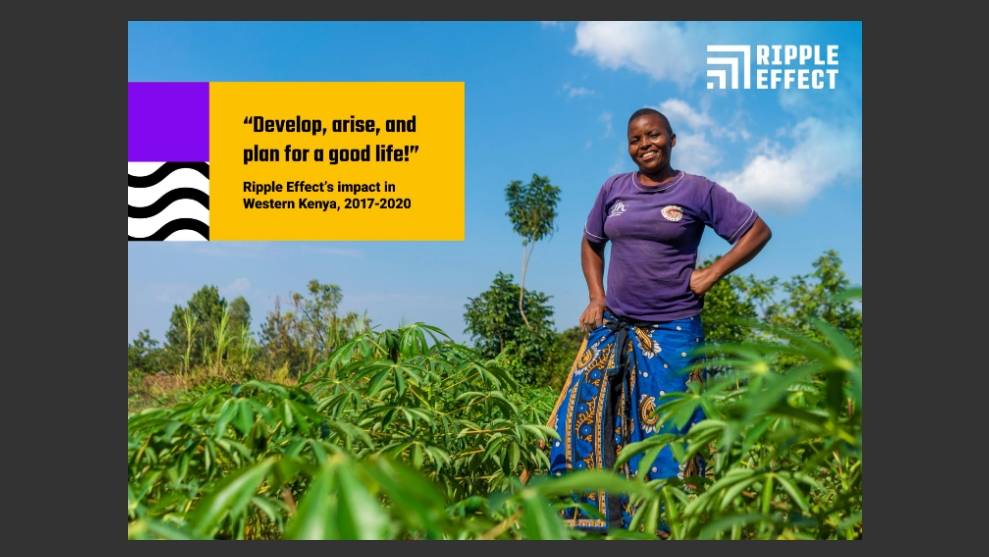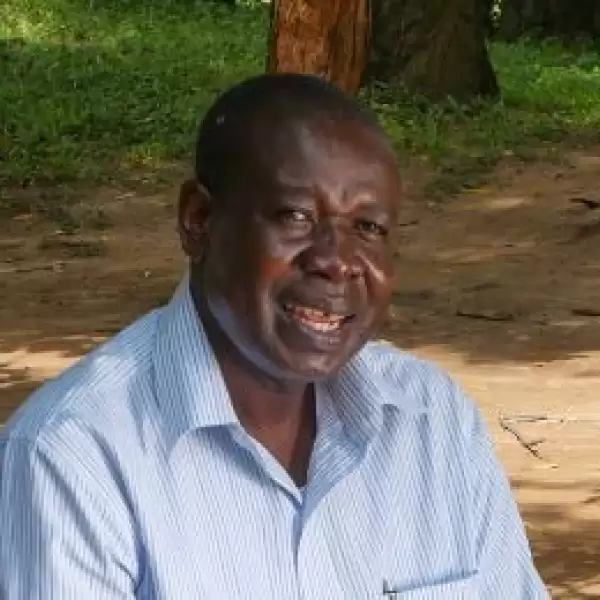Kenya
Although now classified as a lower middle income country with steady economic growth, Kenya faces many challenges including poverty, inequality, climate change and vulnerability to shocks. Thirty-five percent of our population still live below the international poverty line on less than $1.90 per person, per day.
We want to see a Kenya full of life and joy, where families do more than simply survive. We want to see them really live. We want to see children go to school, people chase their dreams, and poverty a distant memory.
The challenges and opportunities for Ripple Effect Kenya
1. 80% of our population depends on agriculture
As agriculture employs such a large percentage of our population, contributing 25-30% of GDP the economy is highly vulnerable to climate variability. We are highly dependent on climate sensitive sectors including agriculture, water, energy, forestry and tourism.
Ripple Effect Kenya works with communities to regenerate and protect their natural environment as well as build resilience to climate change risks.
2. Over 19 million Kenyans (approximately 40% of the population) drink water from unimproved sources
Rivers are the most general supply of Kenya’s drinking water, but they are unreliable, both in quantity and quality. This is especially true in arid climates and during drought where incidences of water borne diseases are increased along with the financial burden of treatment.
Ripple Effect Kenya works to enable communities to access safe water through community initiatives that establish water user committees and protect springs.
3. 62% of the national wealth is controlled by less than 10,000 people
There remains a high level of poverty and exclusion despite a decline in our countries poverty rate, with a concentration of economic power among the rich. Poverty rates remain above 70% in remote, arid and sparsely populated north-eastern parts of the country. People are excluded from opportunities because of gender, disability or ethnicity. If not addressed, this inequality will result in over 2.9 million more people living in extreme poverty in the next 5 years.
The impact of Ripple Effect Kenya
- 98% of families are now food secure after our projects in Busia and Bungoma
- 80% of families now live above the poverty line after our projects in Busia and Bungoma
- 77% of women fully involved in decisions about crops to be grown: up from 23%
- 50% fewer people are using untreated water after our project in Kakrao Migori county

*Project reports compiled before June 2022 refer to our organisation’s previous name Send a Cow Kenya.
How our work supports Kenya’s sustainable development goals and national targets
Kenya’s Medium Term Plan 3, building towards Kenya Vision 2030 includes a focus on:
Ensuring 100% universal health coverage
Our key projects have a strong health focus, including through partnerships such as community based health Insurance.
Ensuring 100% food and nutrition security
We are prioritising poverty alleviation in western Kenya, while expanding into semi-arid areas where poverty rates can be as high as 70%. Our core work will grow and strengthen the capacity of Peer Farmer Trainers to build specialist knowledge in sustainable crop-livestock and vegetable farming systems.
In addition…
- Our climate change strategies address the national climate response strategy. We undertake disaster risk reduction assessments for all projects and promote climate change adaptation technologies including early warning systems and use of indigenous knowledge.
- We encourage local enterprise development by promoting small farm enterprises, supporting savings and loaning groups, cluster level associations and cooperatives.
- Our projects ensure equal opportunities for all community members, particularly women, youth, people with disabilities and marginalised groups.
Our partnerships
- The Brooke East Africa
- International Livestock Research Institute (ILRI)
- Kenya Agricultural and Livestock Research Organisation (KALRO)
- International Center for Tropical Agriculture (CIAT)
- Heifer International (Kenya)
- International Centre for Insect Physiology and Economy (ICIPE)

Country Director
Titus Sagala
Please speak to me about opportunities for collaboration on programme delivery and partnership, and any media queries.

Programme & Partnership support manager
Alfred Juma
Please speak to me about programme delivery and partnership opportunities
For anything else please contact programmes@rippleeffect.org and we will reply to you promptly.
Ripple Effect Kenya Head Office
Kefinco Estate, Finland rd.
House No. 2
P.O. Box 1761 – 50100
Kakamega, Kenya
Tel: (+254) 562 031 245
Email: kenya@rippleeffect.org
Sign up to hear more
Want to hear good news stories from Africa, get involved in fantastic fundraising and be part of exciting events? Fill out your details below and we will keep you updated by email.
By providing your email address above, you are confirming that you are happy for Ripple Effect to contact you by email. We will use your email to let you know about news, events, fundraising and appeals. We will never sell or trade your details. Read more about how we value your privacy. You can unsubscribe at any time by emailing info@rippleeffect.org or by clicking the unsubscribe link in any email we send.
